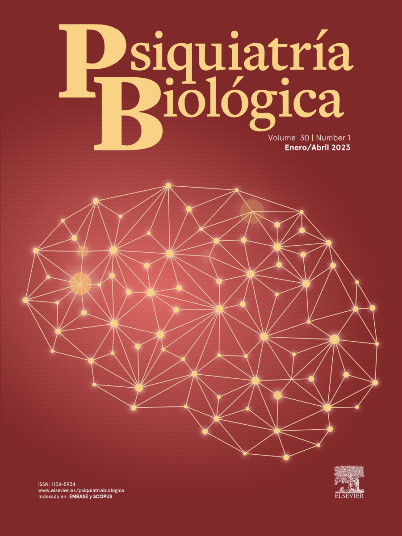Frontotemporal dementia is an insidious neurodegenerative clinical syndrome characterized by progressive deficits in behavior, executive function, and language. The initial clinical presentation of some patients with FTD may resemble bipolar mood disorder.In this case, it was planned to diagnose FTD in addition to the emergence of behavioral and cognitive problems in the patient followed up with bipolar mood disorder and to discuss the difficulties experienced in the treatment. In 2017, he was diagnosed with bipolar mood disorder due to loud speech, irritability, thinking that he was cast under a spell, increased spending, driving fast, swearing at relatives. He was followed up with lithium, olanzapine and quetiapine treatment, and he benefited from the treatment. The diagnosis of frontotemporal dementia was considered in the patient who underwent brain diffusion MRI and PET CT in December 2020, upon the onset of the complaint of forgetfulness. Informed consent was obtained from the patient and his relatives.In conclusion, in our case who was followed up with bipolar disorder, a co-diagnosis of frontotemporal dementia was made with the emergence of memory and behavioral pathologies in the later follow-ups. With the diagnosis of FTD, the severity of the patient's manic episodes, clinical presentation, and treatment response changed. Therefore, FTD should be considered in the differential diagnosis of patients who are followed up with bipolar disorder and subsequently have clinical changes.
La demencia frontotemporal es un síndrome clínico degenerativo insidioso caracterizado por déficits progresivos conductuales, de la función ejecutiva y del lenguaje. La presentación clinica inicial de algunos pacientes con DFT puede asemejarse al trastorno bipolar. En este caso, se planificó diagnosticar DFT además de la aparición de problemas conductuales y cognitivos en el paciente seguidos de trastorno bipolar, y debatir las dificultades experimentadas en el tratamiento. En 2017 había sido diagnosticado de trastorno bipolar a causa de habla en voz alta, irritabilidad, pensamiento de tener mal de ojo, incremento del gasto, conducción rápida, y blasfemias con los familiares. Siguió tratamiento de litio, olanzapina y quetiapina, obteniendo beneficio del mismo. Se consideró diagnóstico de demencia frontotemporal en el paciente, a quien se practicó IRM de difusión cerebral y PET/TC en diciembre de 2020, hasta el inicio de su dolencia de olvido. Se obtuvo consentimiento informado del paciente y sus familiares. En conclusión, en nuestro caso, que fue seguido de trastorno bipolar, se realizó un codiagnóstico de demencia frontotemporal con la aparición de patologías de la memoria y conductuales en los últimos seguimientos. Con el diagnóstico de DFT, se modificó la gravedad de los episodios maníacos, la presentación clínica y la respuesta al tratamiento del paciente. Por tanto, deberá considerarse DFT en el diagnóstico diferencial de los pacientes a quienes se realiza seguimiento por trastorno bipolar, y que experimentan seguidamente cambios clínicos.
Artículo
Comprando el artículo el PDF del mismo podrá ser descargado
Precio 19,34 €
Comprar ahora








